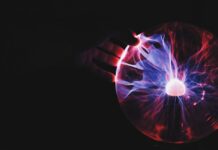The evolving power of AI in the sleep therapy solutions is reshaping how we diagnose, treat, and manage sleep disorders in profound ways. As the technology becomes more advanced, AI in the sleep therapy solutions is unlocking new pathways for personalized care, predictive analytics, and behavioral therapy—all of which improve the patient experience and clinical outcomes. For healthcare professionals and patients alike, understanding the capabilities of AI in the sleep therapy solutions is critical for embracing the next generation of sleep healthcare.
1. AI Transforms Sleep Disorder Diagnosis
AI is revolutionizing the diagnosis of sleep disorders, making the process faster, more accurate, and less intrusive. Traditional methods like polysomnography require overnight stays in sleep labs, which can be costly and uncomfortable. AI now enables remote monitoring using wearables and smart devices that analyze biometric data such as brain waves, breathing patterns, and heart rate. Machine learning models sift through this data in real time, detecting irregularities indicative of conditions like insomnia, sleep apnea, and narcolepsy with high precision. This real-time feedback loop enhances early diagnosis and facilitates quicker treatment initiation.
2. Personalized Therapy Plans Driven by AI
AI enables hyper-personalized treatment regimens tailored to individual sleep patterns, behaviors, and environmental factors. Using big data and pattern recognition, AI systems can suggest optimal bedtime routines, dietary adjustments, and even light and sound modifications. These intelligent systems adapt over time, refining suggestions based on ongoing data analysis. This dynamic approach leads to more effective treatment outcomes, higher compliance rates, and better overall sleep health.
3. Predictive Analytics for Preventative Care
One of AI’s strongest advantages is its predictive capability. By analyzing longitudinal data, AI can predict future sleep disturbances before they manifest as severe symptoms. This is particularly valuable for patients prone to recurring issues such as insomnia or restless leg syndrome. AI tools can alert both patients and doctors to potential problems, allowing for early intervention. This proactive model reduces the need for emergency treatments and improves long-term patient outcomes.
4. Enhanced Cognitive Behavioral Therapy for Insomnia (CBT-I)
AI-powered digital platforms have democratized access to Cognitive Behavioral Therapy for Insomnia (CBT-I). These platforms use algorithms to simulate therapeutic interactions, offering customized feedback and tracking user progress. NLP (natural language processing) enables these systems to understand and respond to patient input in a conversational format. This digital transformation of CBT-I increases its accessibility, reduces therapy costs, and ensures continuity of care.
5. Real-Time Remote Monitoring and Feedback
AI facilitates continuous monitoring through wearable tech and IoT devices, enabling real-time tracking of sleep quality and vital statistics. These systems generate instant feedback for both users and healthcare providers, allowing quick adjustments to treatment plans. Some platforms even automate alerts for irregular patterns, ensuring timely interventions. This real-time monitoring is especially valuable for patients with chronic sleep issues or those undergoing complex therapy regimens.
6. Integration with Smart Home and IoT Devices
AI has seamlessly integrated into smart home ecosystems to optimize sleep environments. Smart beds, lighting systems, and temperature regulators work in harmony with AI algorithms to create ideal conditions for restful sleep. These systems adjust automatically based on individual preferences and real-time biometric data. This level of environmental control contributes significantly to sleep hygiene and reduces reliance on pharmaceutical treatments.
7. Multimodal Data Synthesis for Holistic Care
AI excels at aggregating diverse datasets—from wearable devices, sleep diaries, ambient sensors, and more—into a unified model. This multimodal synthesis allows clinicians to see a complete picture of a patient’s sleep health, enabling more nuanced diagnoses and treatment plans. For instance, linking dietary intake with sleep disruptions or identifying correlations between stress levels and sleep latency becomes straightforward with AI-driven platforms.
8. Automation and Efficiency in Sleep Clinics
Sleep clinics are benefiting immensely from AI automation. Administrative tasks like scheduling, data entry, and patient follow-ups are now handled by intelligent systems, freeing up medical staff to focus on patient care. AI tools also assist in report generation and pattern analysis, reducing diagnostic time and human error. This operational efficiency translates into better resource allocation and improved patient throughput.
9. Specialized Solutions for Vulnerable Populations
AI is especially beneficial for populations with unique sleep needs, such as children, the elderly, and individuals with disabilities. Pediatric AI tools monitor developmental sleep milestones, while geriatric models focus on comorbidities and medication interactions. AI also tailors solutions for neurodivergent individuals, offering targeted interventions that traditional methods might overlook. These specialized solutions ensure inclusivity and equity in sleep healthcare.
10. Ethical and Privacy Safeguards in AI-Driven Sleep Therapy
As with all AI applications in healthcare, ethical considerations are paramount. Sleep data is deeply personal, and its protection is critical. Developers must ensure that AI systems comply with data privacy regulations like HIPAA and GDPR. Transparency in algorithmic decision-making and the elimination of biases are also essential. Patients must be informed about how their data is used, stored, and shared to maintain trust in AI-driven systems.
Conclusion
Understanding the transformative impact of AI in the sleep therapy solutions is essential for anyone invested in sleep health. From precision diagnostics to personalized therapy and predictive analytics, AI in the sleep therapy solutions empowers clinicians and patients with tools for better sleep management. As technology continues to evolve, embracing these AI-driven solutions will become not only beneficial but necessary for delivering optimal sleep care.

















